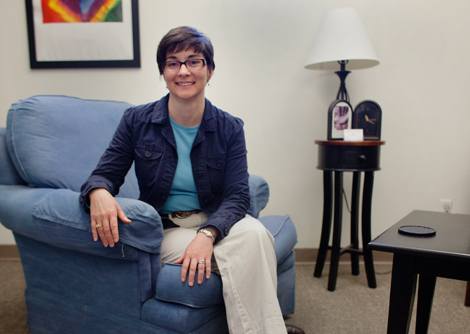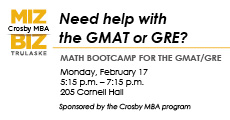On Jan. 22, a federal report was released on sexual assaults at universities. The report emphasized the need for bystander programs, in which a student or employee steps in to stop a situation that could lead to someone’s harm. “Bystanders must be taught and emboldened to step in and stop it,” President Barack Obama said at the White House announcement of the report.
The University of Missouri has two bystander programs. It also has MU Police. But that isn’t all the campus does to help ensure the safety and well-being of students. MU has programs that aid students challenged by mental health issues, including those related to sexual assault. Programs also educate staff and faculty on student intervention.
“Our efforts strive to increase mental health literacy, decrease stigma and empower the campus community to respond in effective ways,” said Christy Hutton, programming and communications coordinator of the MU Counseling Center.
Mental Health Help
The Counseling Center in Parker Hall assists students in learning how to cope with emotional challenges that impact social and academic success. Among the programs, all of which are offered at no additional cost to MU students, are individual and group therapy, couple counseling, crisis intervention, and outreach programming.
Information shared by students to MU counselors remains confidential unless students give written permission. Exceptions are if there is immediate risk of serious injury or death to the student or others. In instances when students are hesitant to disclose something such as suicidal thoughts or inappropriate sexual behavior directed toward them, counselors are trained how to gently keep the conversation going.
“They would work with the client until he or she was ready to talk with someone about it,” said Cathy Scroggs, vice chancellor for student affairs.
Three Counseling Center workshops being held regularly address suicide prevention and how to respond to mental health problems.
Question Persuade Refer: The national program trains the university community to recognize warning signs of students who might be seriously thinking about suicide. Students and Residential Life staff typically attend the program. Nearly 500 students and staff members have participated since August 2012.
Mental Health 101, or How to Help a Friend: Workshops are offered in a variety of forms that help people recognize basic signs and symptoms of mental illness. More than 2,500 faculty, staff and students have been trained since August 2012.
Mental Health First Aid: The eight-hour course trains employees who are on the frontlines. Participants are taught to spot and handle basic needs of people in mental distress, and support the person until the situation is resolved or a professional takes over. Faculty, office leaders, advisers and Residential Life staff are among the 642 people who have taken the course since it began in summer 2011. Interest in the course is growing; in January, 105 were certified, Hutton said.

Christy Hutton is programming and communications coordinator of the MU Counseling Center. Photo by Rob Hill.
Jess Soete, a former academic adviser at the School of Nursing, completed Mental Health First Aid in 2012. She said the training enabled her to handle students’ concerns better. Sometimes she walked students from her office to the Counseling Center for further help.
Counseling Center staff clinicians are also available during major crisis situations, such as in a student death, Hutton said. Clinicians go on-site to residence halls, Greek houses and various campus locations.
Another resource is the Wellness Resource Center in the Student Center. It has a variety of programs to help students make informed, responsible decisions to lead healthy lives. Among them is Ask, Listen, Refer, a 20-minute online course that aids students, faculty and staff in recognizing people who are suicide risks and getting them help. An Urgent Need tab links to MU and outside agencies.
“Life is full of ups and downs for students, and when downs happen, we as a campus are ready to help,” said Kim Dude, director of the Wellness Resource Center.
Student Advocacy
Another important service is the Relationship and Sexual Violence Prevention Center (RSVP) in the Student Center. RSVP’s purpose is to decrease “the number of MU students who are raped, sexually assaulted, stalked or abused in a relationship,” according to its website.
The center has about 60 workers: three graduate assistants; 20 work-study and volunteer student staff; 27 educators; five members of STARS (Stronger Together Against Relationship and Sexual Violence); and a few other informal volunteer students. Danica Wolf is the center’s coordinator.
RSVP is comprehensive in its offerings and referrals.
Medical advocacy: Students can be referred to University Hospital’s ER for a free appointment with a nurse trained in sexual assault examinations.
Legal advocacy: Representatives can advise students of legal options, such as filing a police report or restraining order.
Mental health advocacy: Representatives can refer students to professionals at the Counseling Center or, if preferred by student, an outside agency.
Housing advocacy: Residential Life or off-campus housing authorities can be contacted to ensure a student’s home safety.
Academic advocacy: Representatives can work with school and college leaders to help the student succeed academically during a challenging period.
With a student’s approval, family and friends might be part of counseling sessions. “We help friends and family who are struggling with how to help their loved one through this difficult time,” Wolf said.
RSVP, along with the Counseling Center, the Wellness Resource Center and other campus programs, is part of MU’s Suicide Prevention Task Force, which provides training and events throughout the year on suicide prevention.
RSVP, moreover, supports MU’s Social Justice Symposium, which examines activism and fairness in society. This year’s event, titled “Beyond Words: A Focus on Understanding and Activism,” is 11 a.m.–5 p.m. Feb. 22 in the Student Center’s Leadership Auditorium. There is no cost to students, staff and faculty to attend.
Green Dot Campus
Bystander programs are becoming more common on college campuses. The programs ask observers of a potentially dangerous situation to step in. It might be as simple as steering a female student whose had too much to drink away from going home with someone she just met. The idea is similar to the designated driver program (called STRIPES on campus), introduced in the 1980s and credited with reducing drunk-driving deaths across the nation.
RSVP offers Green Dot, a bystander outreach program to students, staff and faculty.
Representatives give talks at Summer Welcome and ROTC meetings, in residence halls and Greek houses, and to faculty and athletic teams. The program’s name comes from the speckle of green dots on a campus map hanging in the RSVP office. MU students and employees can report their bystander act on RSVP’s website or an office form. Representatives then place a green dot on the map where the act took place. The goal is a sea of green.
Meanwhile, the Wellness Resource Center offers LINSS, or Life Is Not a Spectator Sport. LINSS and RSVP often collaborate on bystander outreach events.
“No one has to do everything, but everyone can do something” is the motto of the MU bystander programs.
Additional reporting by JeongAn Choi.
Help for Students
The Counseling Center
119 Parker Hall
882-6601
counseling.missouri.edu
RSVP Center
G210 Student Center
882-6638
rsvp.missouri.edu
The Wellness Resource Center
G202 Student Center
882-4634
wellness.missouri.edu
Student Health Center
Fourth Floor University
Physicians Medical Bldg.
1101 Hospital Drive
882-7481
studenthealth.missouri.edu
Student Legal Services
2500 Student Center
882-9700
sls.missouri.edu
Provides free legal consultation for students, including information on restraining orders
MU Equity Office
S303 Memorial Union
882-9069
equity.missouri.edu
Works with faculty, staff and students who believe they might have been subjected to unfair or inequitable treatment. Information on Title IX.
Office of Student Conduct
G206 Student Center
882-5543
conduct.missouri.edu
Students can contact this office to begin an investigation of an alleged assault before or instead of contacting police.
After Hours Emergencies
MU Police Department
901 Virginia Ave.
882-7201
mupolice.missouri.edu
National Suicide Prevention Lifeline
800-273-8255



